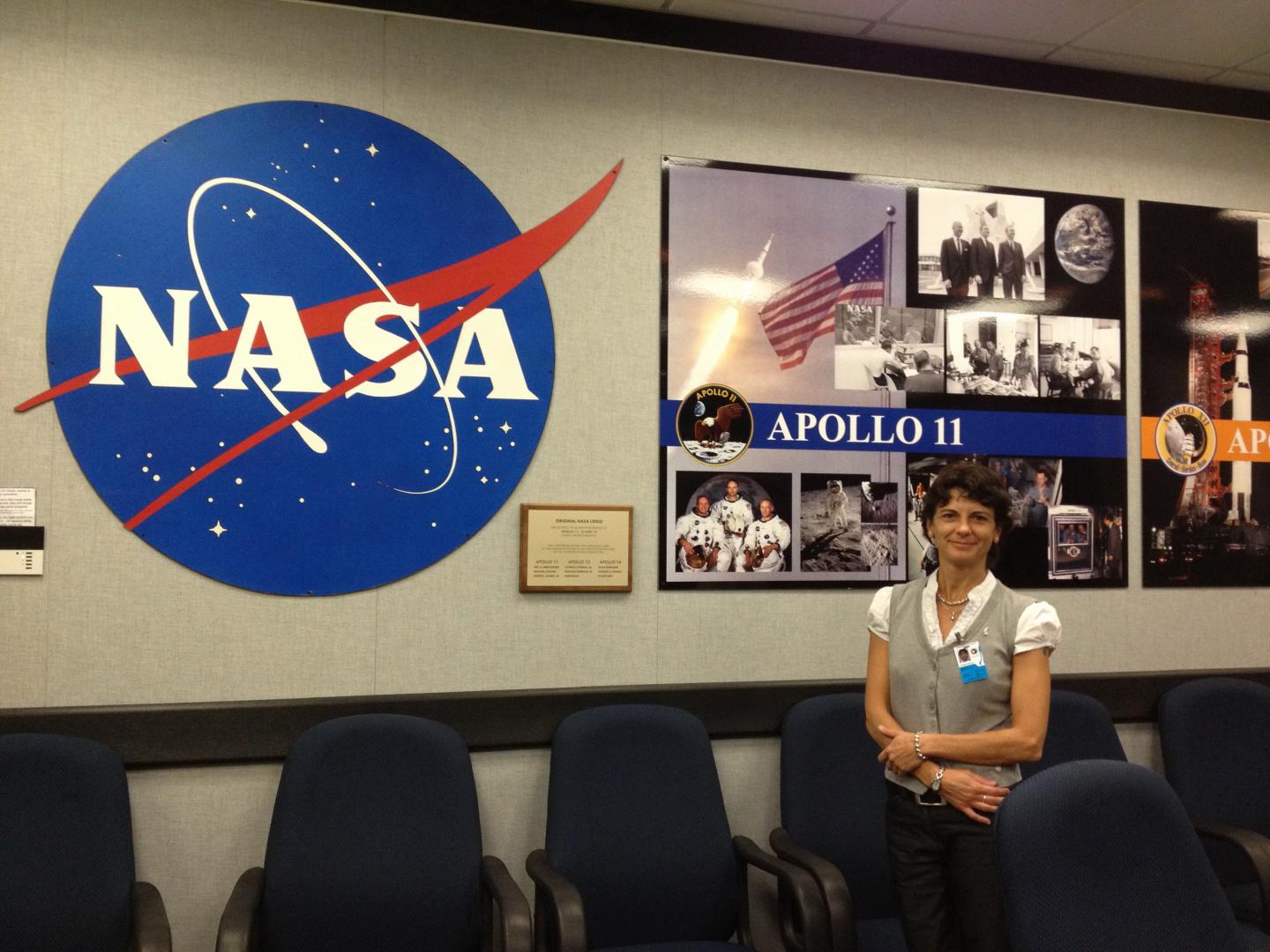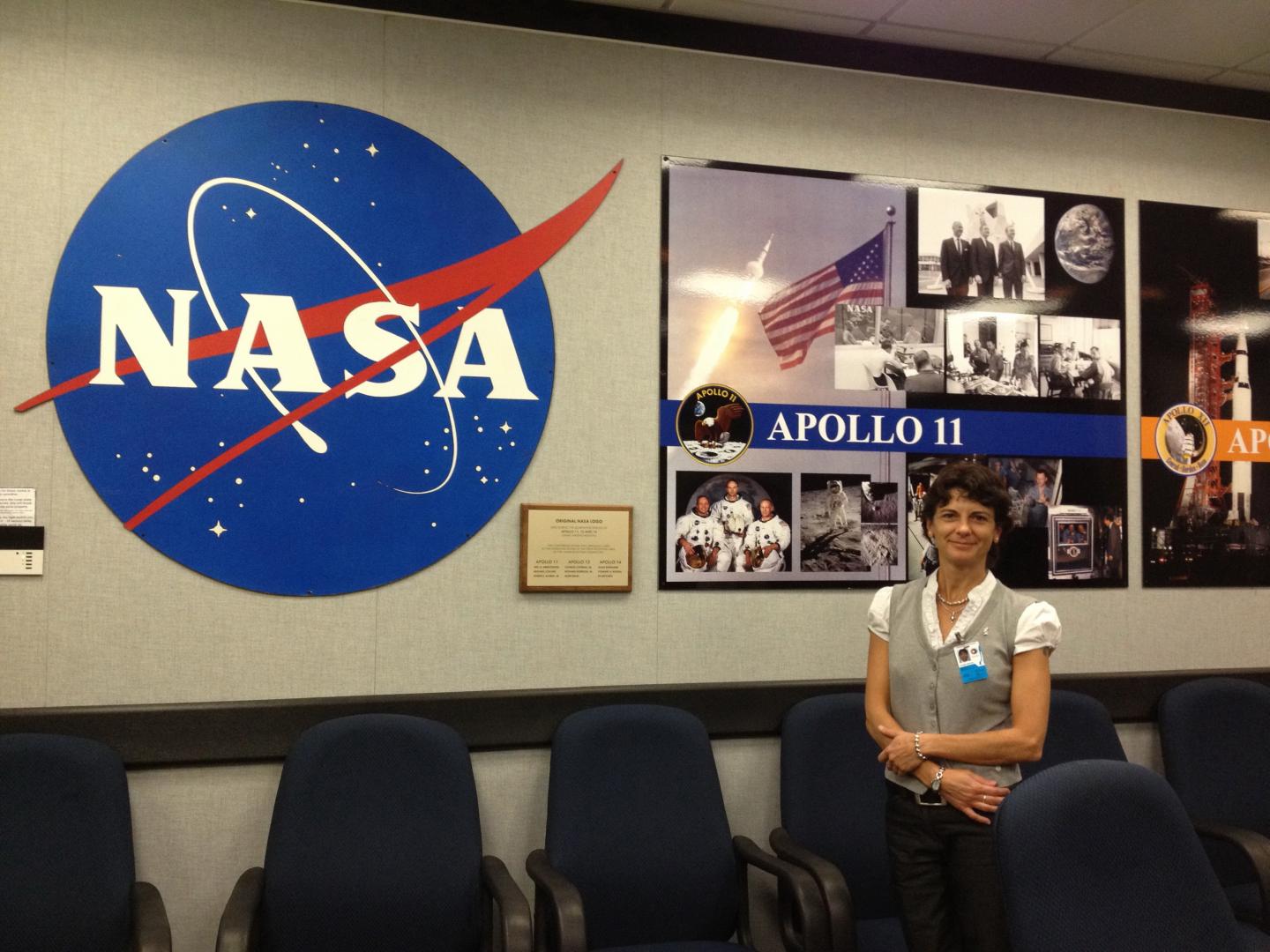
Credit: University of Konstanz
The mere fact that Dr Maria Moreno-Villanueva's spontaneous application to NASA worked out should be regarded a huge success. A one-year sabbatical at NASA turned into two years funded by the German Research Foundation (DFG), at the end of which awaits another accolade: Dr Moreno-Villanueva's idea for developing an automated diagnostic procedure for the detection of DNA damage in space has been awarded a $10,000 funding grant by NASA's Johnson Space Center. To complete this and other ongoing projects, the biologist, who belongs to Professor Alexander Bürkle's Molecular Toxicology Group at the University of Konstanz, will move back to Houston, Texas, for another six months.
Astronauts are exposed to the risk of DNA damage in various ways: nearly zero gravity, cosmic radiation – e.g. emitted by the sun – and psychologically challenging situations, to name but a few. In the face of current plans for long-term manned missions to Mars, NASA has been working intensively on this problem. The automated diagnostic procedure, which Maria Moreno-Villanueva will further develop for use in space, is currently being used in some research institutions and enterprises. It is based on a series of biochemical reactions that detect DNA damage in human blood cells.
Maria Moreno-Villanueva completed the procedure while working towards her doctorate at the University of Konstanz. Later on, she also led a technology transfer process that resulted in a commercially available product. Now, the procedure needs to be adapted for application in space. This involves a number of practical challenges. For instance, due to nearly zero gravity conditions on board any spacecraft, handling fluids in open containers is impracticable. "First of all, we need to test the biochemical procedure in a sealed vessel", the biologist says. She is also looking to reduce the size of the device to that of a radio.
In the coming six months, Moreno-Villanueva and her American colleague Stephanie Krieger (JSC, Wyle KBR) will work to adapt the chemical principle of this procedure to conditions in space. If they succeed, the device could also be used for evaluating the effects of radiotherapy, for instance. Compared to other available techniques, the procedure further developed at the University of Konstanz has the advantage of being fully automated. This guarantees constant conditions for each sample, which is especially important given the fact that the procedure involves the addition of chemical substances in the microlitre range. Maria Moreno-Villanueva has received a number of awards for the development and application of the automated procedure: In 2011, she received the Ursula M. Händel Prize (with Alexander Bürkle) and in 2014 she was awarded the Environmental Award of the "Umwelt und Wohnen an der Universität Konstanz" foundation. Also in 2014, she was named "Woman of the year" by Spain's autonomous Region of Murcia.
Facts:
- $ 10,000 funding grant from NASA's Johnson Space Center for Maria Moreno-Villanueva's innovative idea
- Dr Maria Moreno-Villanueva's two years at NASA were funded by the German Research Foundation (DFG)
- Awarded the Ursula M. Händel Prize and the Environmental Award of the "Umwelt und Wohnen an der Universität Konstanz" foundation, named "Woman of the year" by Spain's autonomous Region of Murcia
###
Note to the editors:
A photograph of Dr Maria Moreno-Villanueva can be downloaded at: http://bit.ly/2tcajYw
Copyright: University of Konstanz
Contact:
University of Konstanz
Communications and Marketing
Phone: + 49 7531 88 -3603
Email: [email protected]
Media Contact
Julia Wandt
[email protected]
https://cms.uni-konstanz.de/en/university-of-konst
############
Story Source: Materials provided by Scienmag




